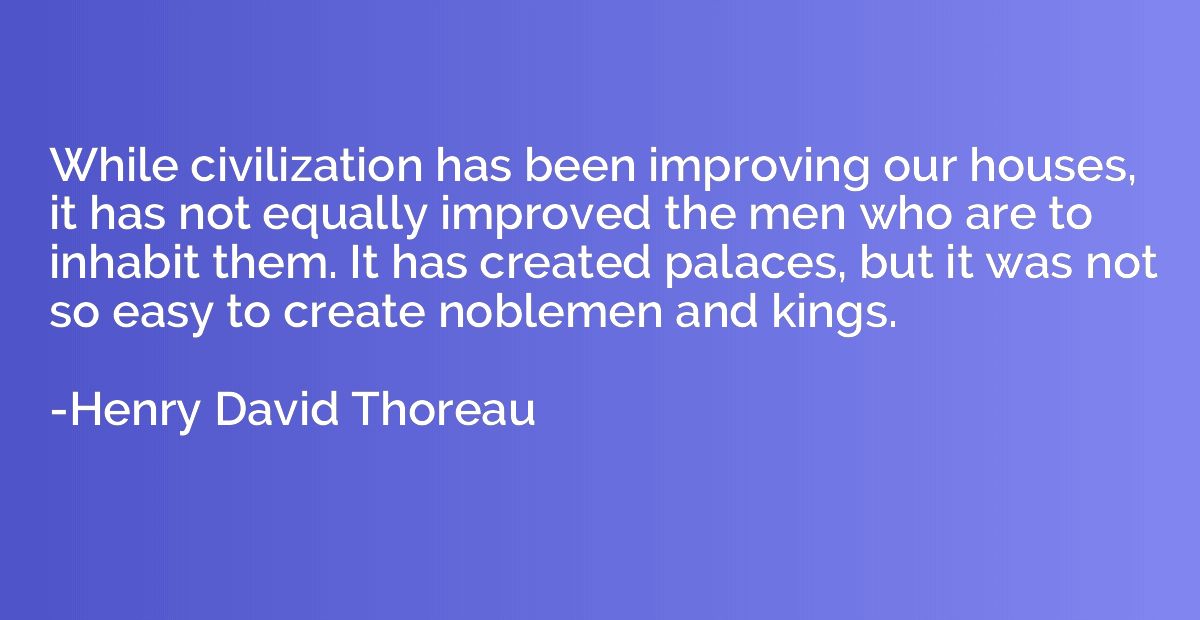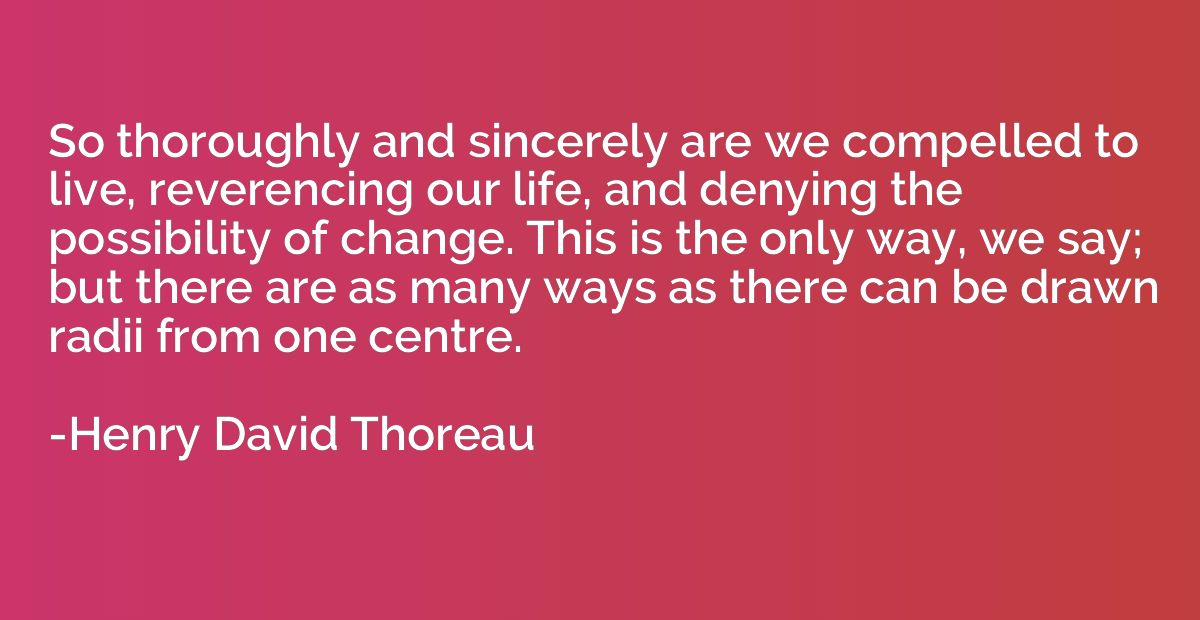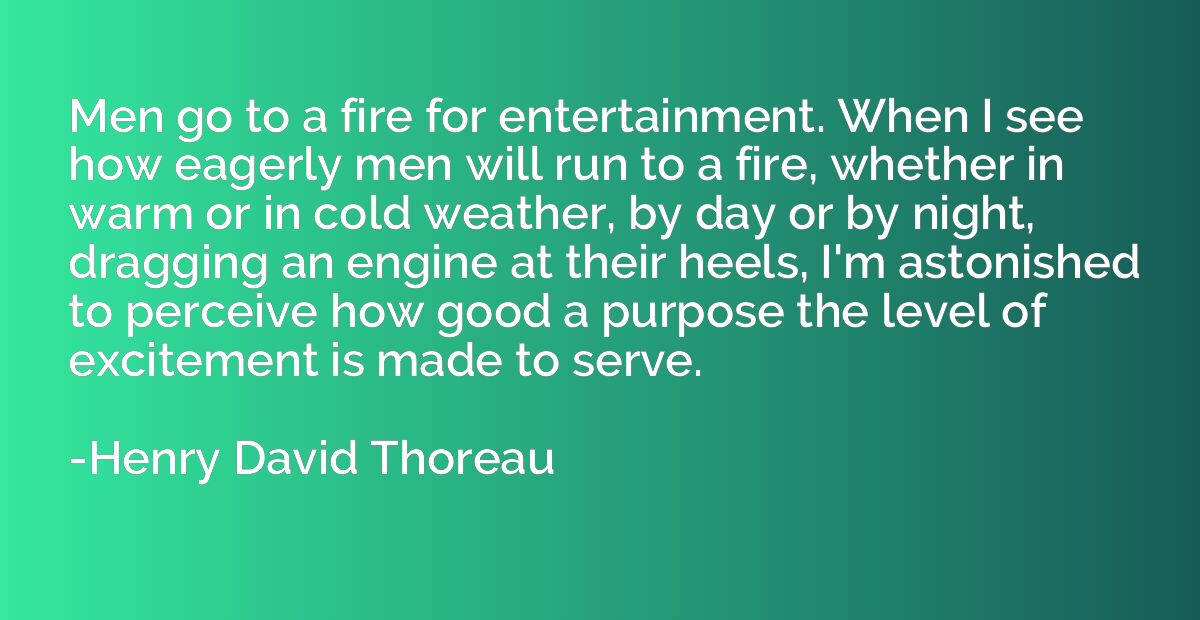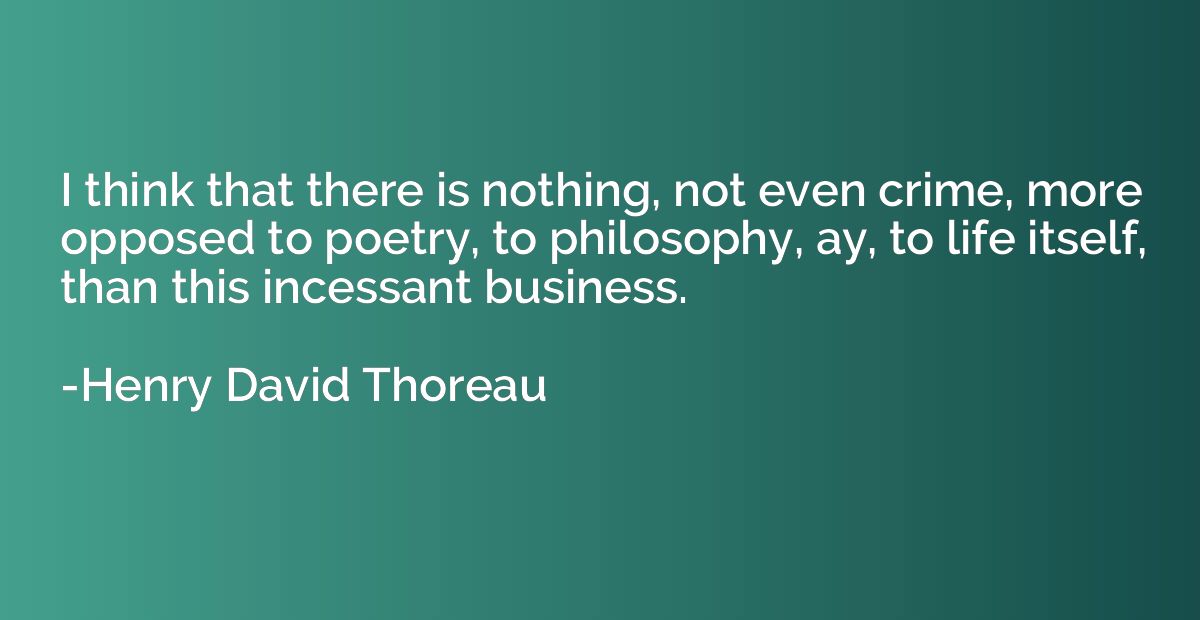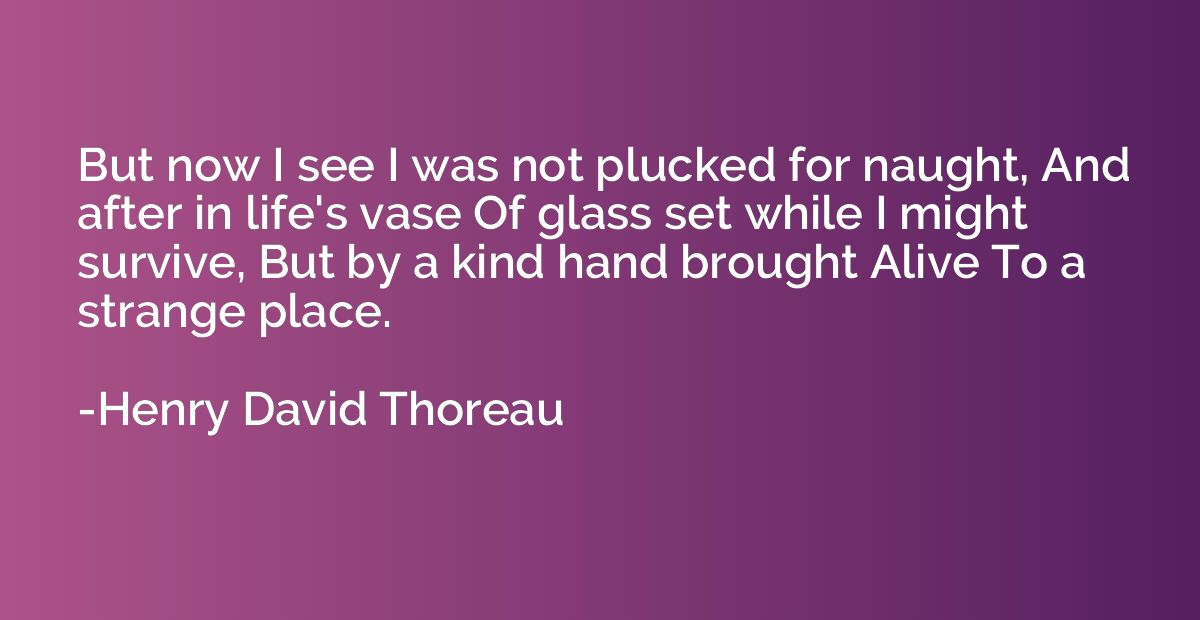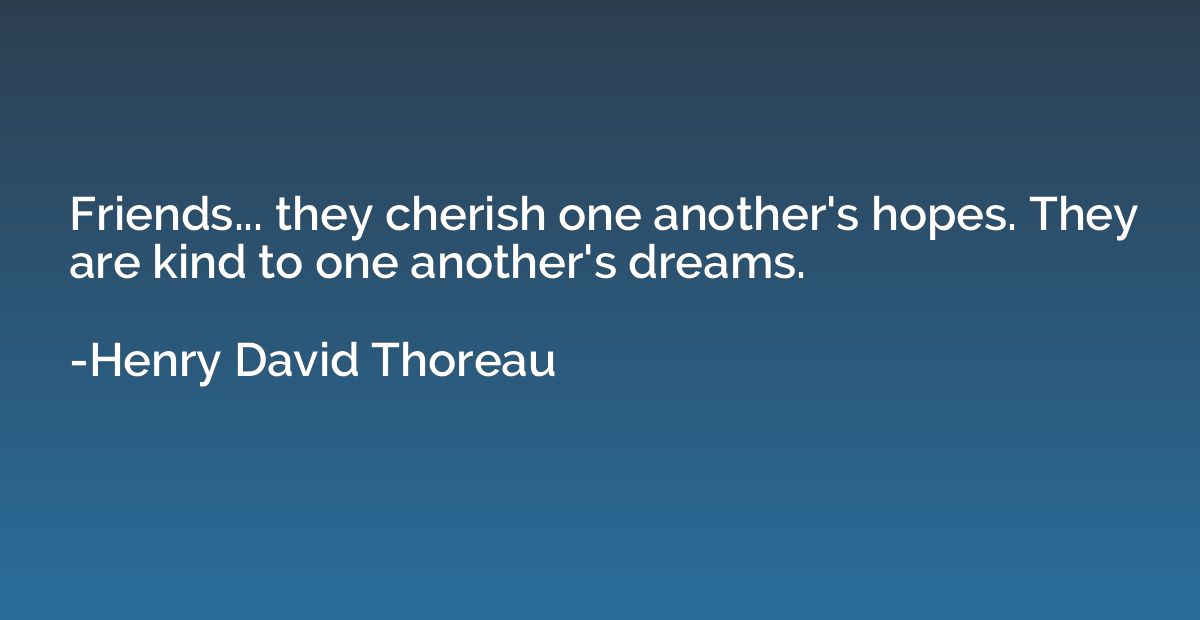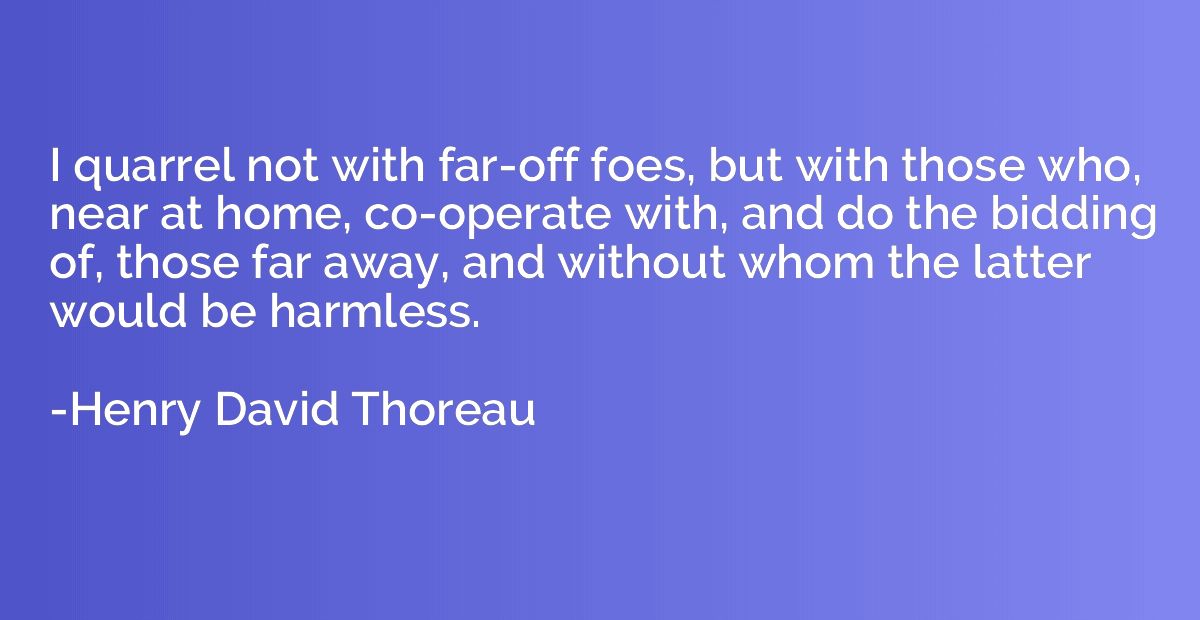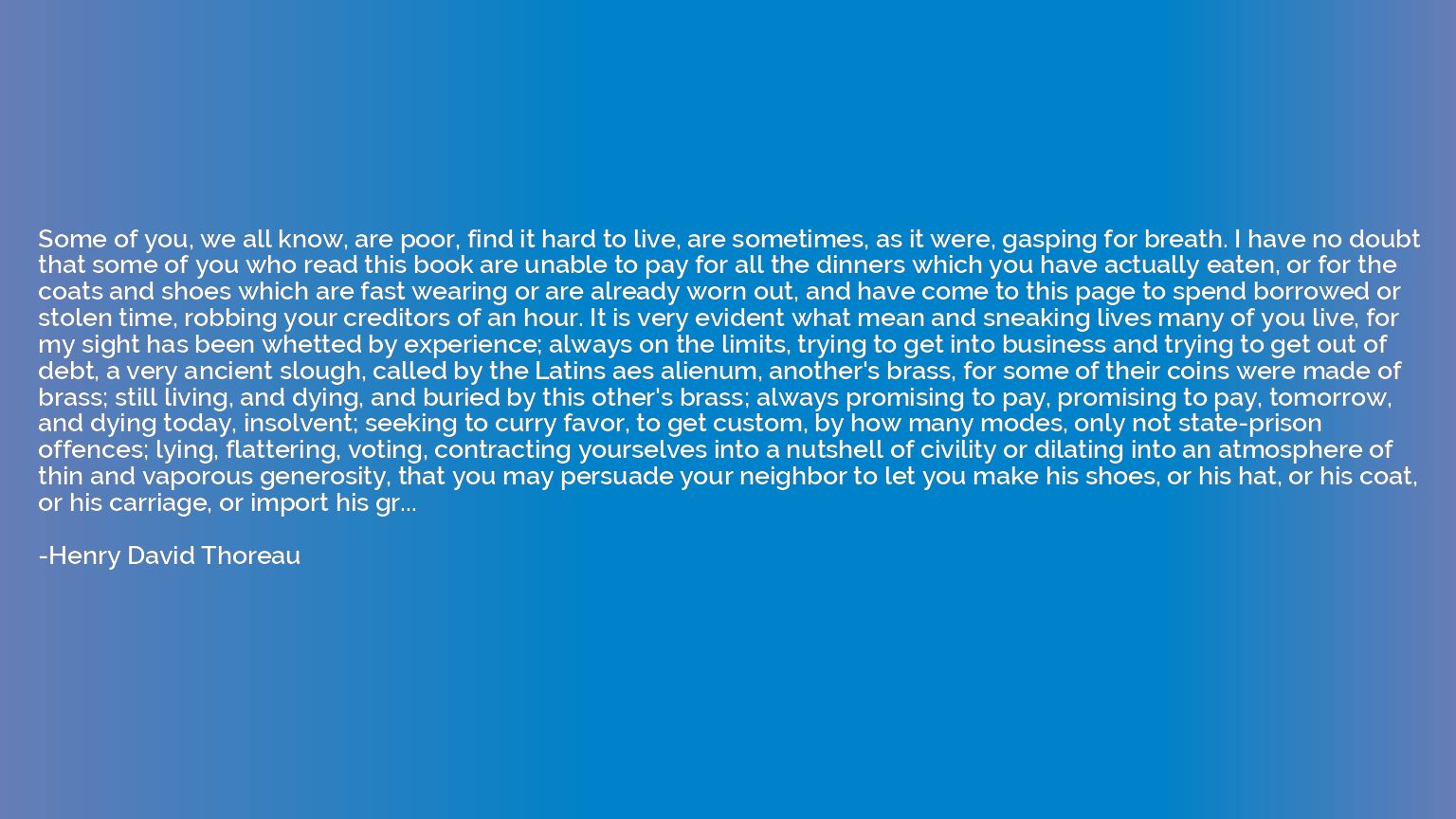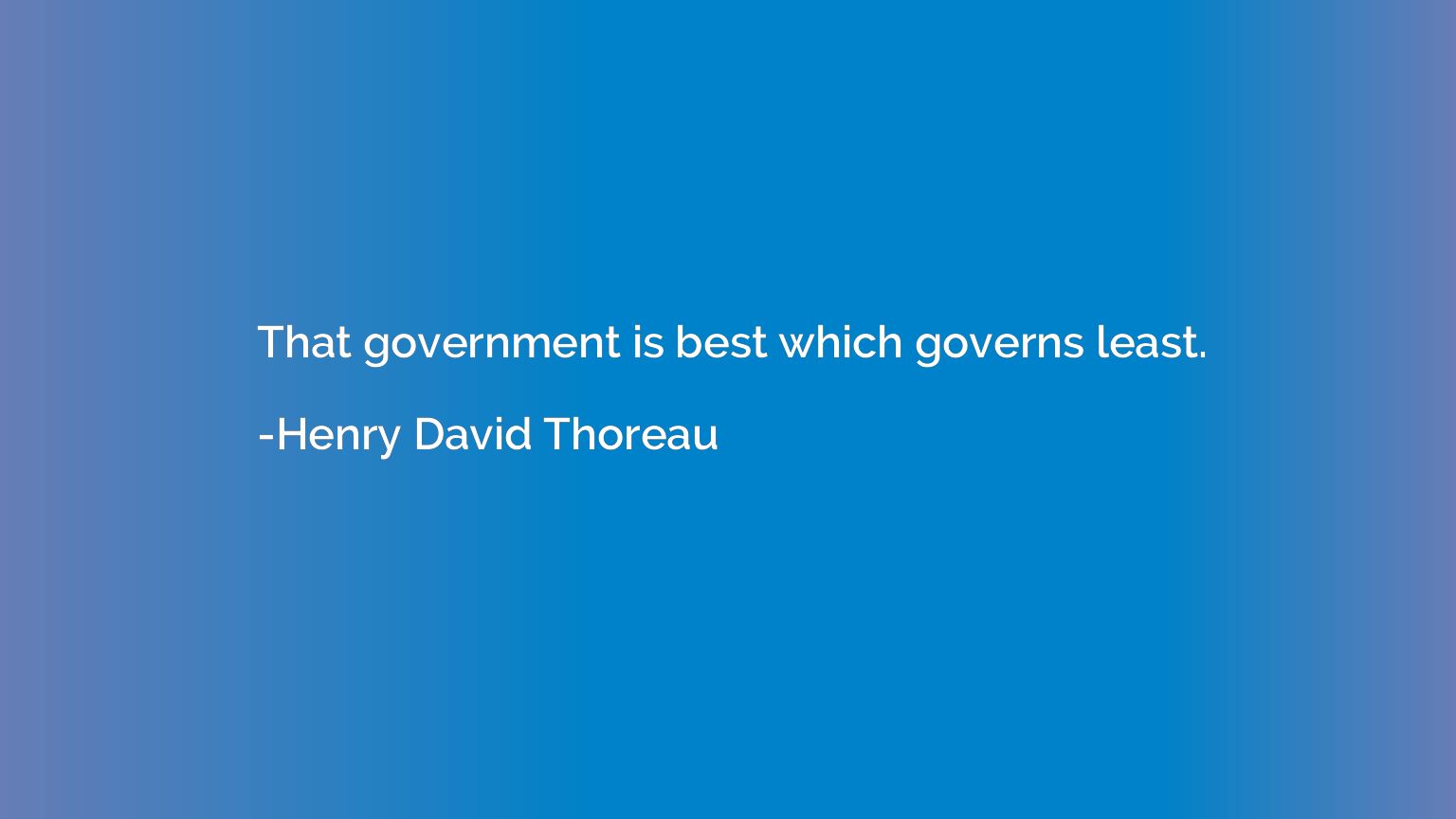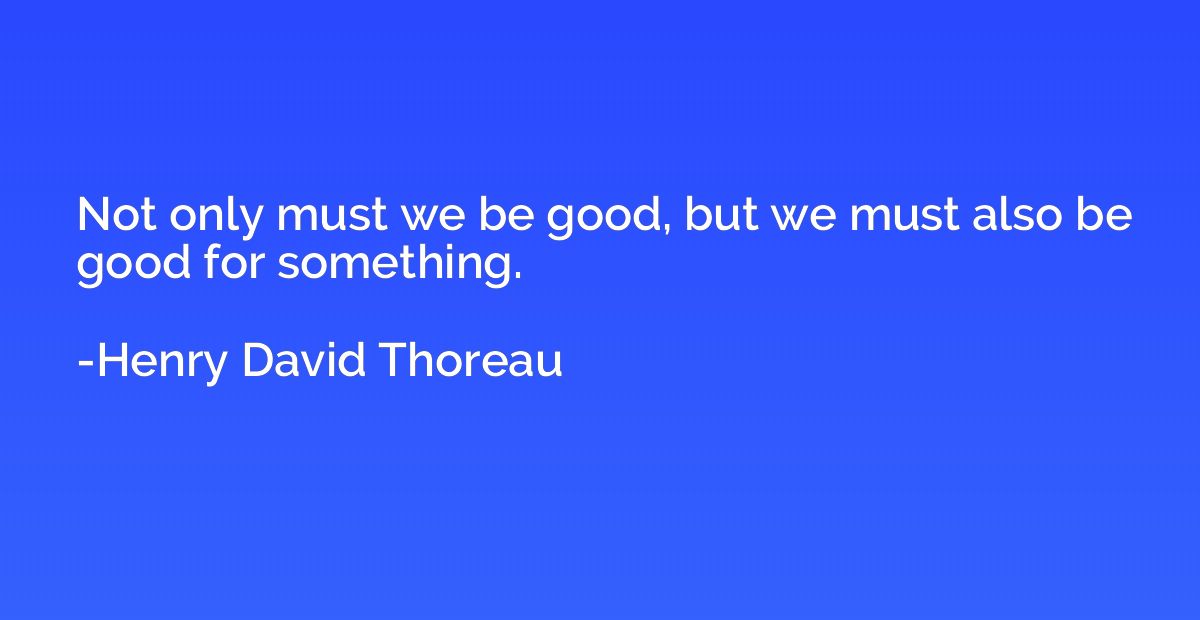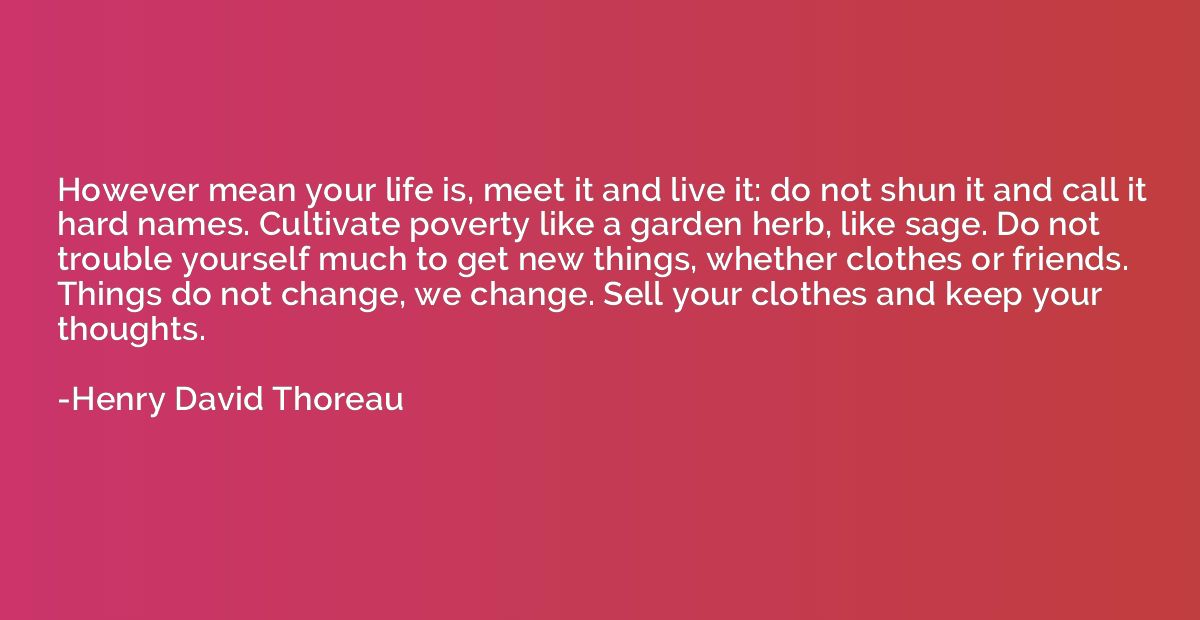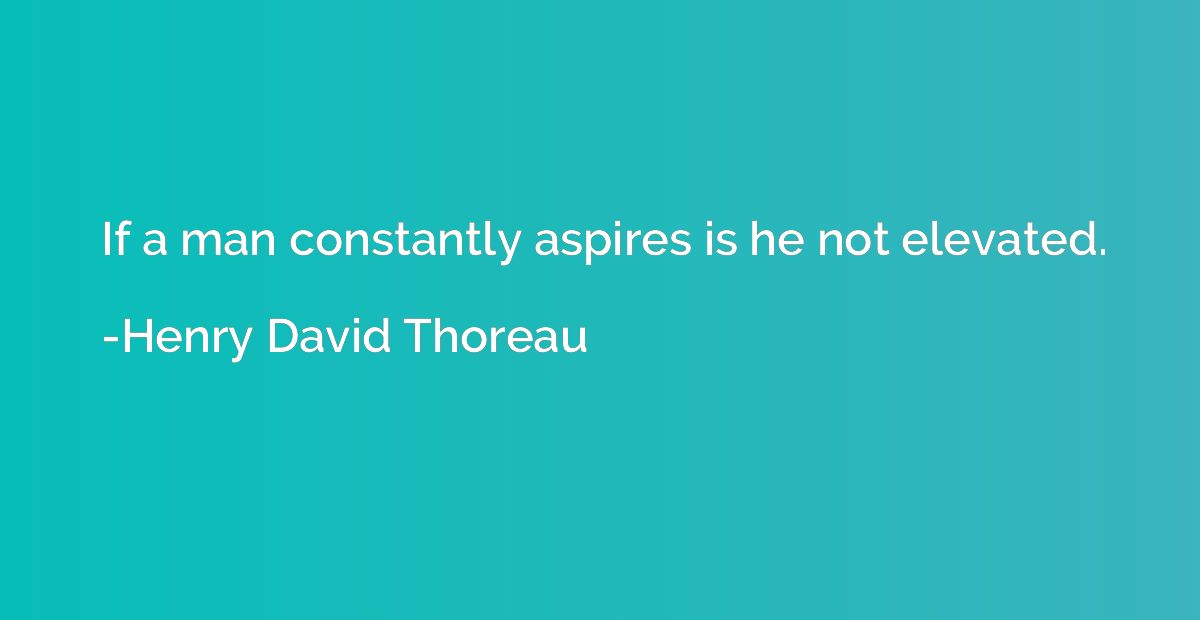Henry David Thoreau Quotes
A collection of quotes by Henry David Thoreau.
Henry David Thoreau (1817-1862) was an American essayist, philosopher, and naturalist, best known for his book "Walden" and his essay "Civil Disobedience." He was born in Concord, Massachusetts, where he spent the majority of his life.
Thoreau was known for his deep connection to nature and his belief in the importance of individuality and self-reliance. He graduated from Harvard University in 1837 and began working as a teacher. However, he soon left the profession to focus on his writing and philosophical pursuits.
In the summer of 1845, Thoreau embarked on a two-year experiment living in a small cabin he built himself on the shores of Walden Pond. This experience formed the basis of his most famous work, "Walden," which explores his reflections on nature, simplicity, and the pursuit of a meaningful life.
Thoreau was also a staunch advocate for social and political reform. His essay "Civil Disobedience" influenced many famous figures, including Mahatma Gandhi and Martin Luther King Jr., and laid the groundwork for the concept of nonviolent resistance.
Throughout his life, Thoreau challenged societal norms and advocated for the preservation of the natural world. His writings continue to inspire and engage readers with their insights into the relationship between humanity, nature, and the pursuit of a meaningful existence.




